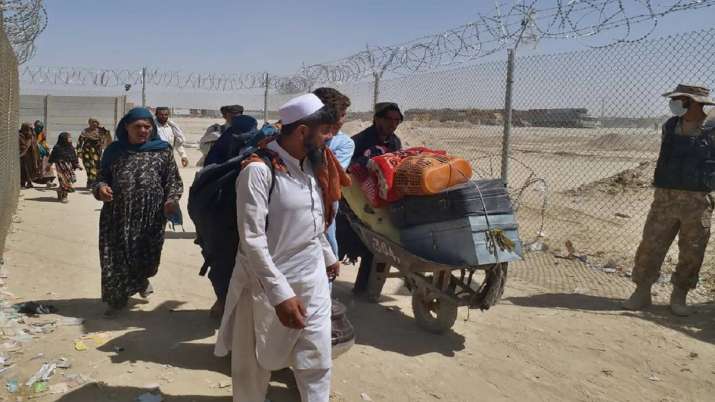
After the Taliban takeover, Afghanistan’s refugee question takes center stage.
Images of US military cargo planes carrying more than six hundred Afghans went viral after the Taliban took over Afghanistan, raising questions about the deteriorating condition of Afghan refugees.
Writing in Crisis Response, Luawut Zahid took an in-depth look at the implications for those fleeing Afghanistan. Chaotic scenes were witnessed at airports as flights were closed, resulting in people blocking the tarmac and boarding evacuation planes. Some died as they were trying to flee the country. Zahid said the situation has put a big question mark about the people, and even more so the refugees are running for their lives.
It is no secret that life as a refugee is difficult, fraught with lack of infrastructure, resources and, in many cases, disdain from the local people. Even as efforts by NGOs and aid agencies to step up the game, the camps where most refugees end up still exist in pathetic conditions.
According to UNHCR figures, this year alone, more than 400,000 Afghans have been displaced from their homes as the terrorist organization claimed areas under its control, up from 2.9 million who have already been displaced internally by the end of 2020. were added, taking the total number to five million.
The question is, who is trying to leave? The answer is simple, and then not so simple. At a glance, it looks like someone and everyone is absconding. Those active in the military or government ranks have a real reason to leave. As Crisis Response reports, they are accompanied by a good proportion of activists, liberal thinkers – and regulars – who have thrown in the panic.
According to Dr Liza Schuster, a sociologist at the City University of London who spent six years in Afghanistan, she said, “The people who are really afraid are those who are educated, people who have been active in civil society and people who work. government.”
She also reveals that the Taliban, despite public promises of apologies and apologies, are going from house to house and going on a witch hunt.
“They are looking for official vehicles and official documents and they are doing so in areas that are mostly occupied by thousands,” he explained. Dr. Schuster explains that exiting itself is uncertain and costly. It’s a game of resources versus frustration, and more often than not, resources don’t win.
“Both Pakistan and Iran have become very reluctant to the Afghans and the closure of the borders has made it really difficult for people to flee on foot,” he said.
The reality is that the people who are fleeing are the poorest people and without enough money for tickets and visas in current Afghanistan that means you are effectively going to end up hunting for cartels and smugglers, Zahid said. .
For an Afghan, leaving the country at any time does not mean moving to greener pastures, the majority will settle in harsh camps, where the quality of life is poor, despite the tireless efforts of various aid agencies. It is pertinent to note that Afghans are reacting with panic to the Taliban takeover because they have lived it before.
Those who are very young don’t remember, they grew up with stories from the time of Taliban rule. As Crisis Response reports, the atrocities and terror attacks have been created in memory of several generations of Afghans.
(with inputs from ANI)
.